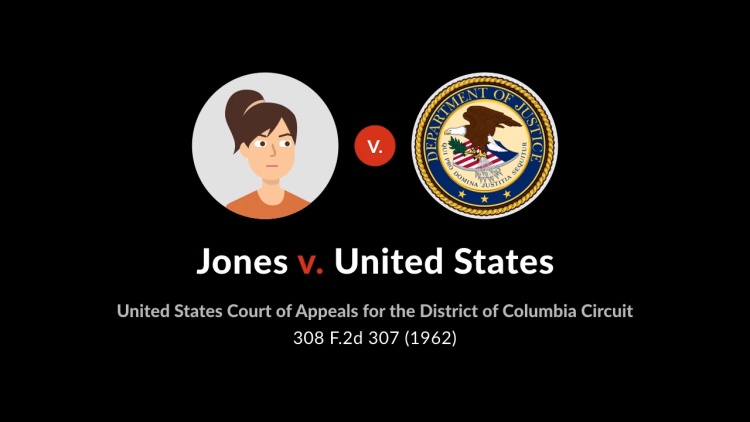Jones v. United States
United States Court of Appeals for the District of Columbia Circuit
308 F.2d 307 (D.C. Cir. 1962)
- Written by Craig Conway, LLM
Facts
Shirley Green (defendant) gave birth to Robert Lee in 1958. Because Green was unmarried, she left Robert with Jones (defendant), who agreed to care for him for $72 a month. Jones claimed that Green stopped making payments after five months, which Green denied. In 1959, Green gave birth to Anthony Lee. Both Green and Anthony lived with Jones after the birth, but Green claimed to have moved out after a few weeks. Anthony suffered from jaundice. When Jones took Anthony to a doctor in July 1960, the doctor urged Jones to take the child to the hospital. Jones did not. Authorities went to Jones’s home in August 1960 and found Robert in a filthy, cage-like crib and Anthony in a bassinet crawling with roaches. Officers removed the children and took them to the hospital. Anthony was malnourished and covered in lesions. Doctors fed Anthony multiple times and said he was very hungry, but he died the next day. Green and Jones were indicted for abusing and maltreating both children, but those charges were dismissed. They were also charged with involuntary manslaughter for the failure to perform the legal duty to care for Anthony. At trial, they argued that Anthony’s jaundice caused him to be unable to assimilate food, but doctors had found no underlying condition that would validate this. The jury found Green not guilty and convicted Jones. Jones appealed, arguing the state had failed to prove she was under a legal duty to care for Anthony.
Rule of Law
Issue
Holding and Reasoning (Wright, J.)
What to do next…
Here's why 908,000 law students have relied on our case briefs:
- Written by law professors and practitioners, not other law students. 47,100 briefs, keyed to 997 casebooks. Top-notch customer support.
- The right amount of information, includes the facts, issues, rule of law, holding and reasoning, and any concurrences and dissents.
- Access in your classes, works on your mobile and tablet. Massive library of related video lessons and high quality multiple-choice questions.
- Easy to use, uniform format for every case brief. Written in plain English, not in legalese. Our briefs summarize and simplify; they don’t just repeat the court’s language.






